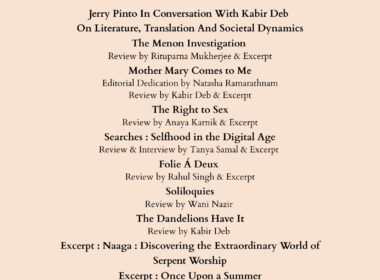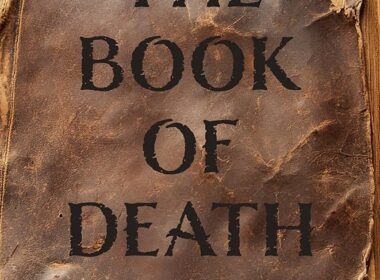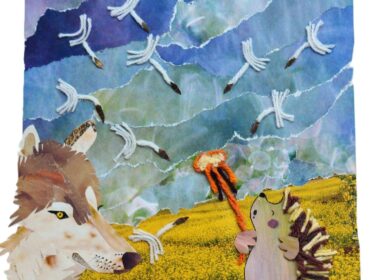Conversations with my Mother
By Fatemeh Karimi (Azadeh)

I have tried many times to get my mother to tell me about her marriage, but I have never succeeded. Many times, I asked her about the beginning of her married life, about her wedding day, but she would always tell other stories with excitement, talking about everything except that day.
From my childhood days, my curiosity has only grown. I would often wonder how to persuade her to open up and let me in on the truth. Just recently, I wrote a letter to my mother and decided to read it to her, hoping to use it to create a nostalgic connection between us so she might respond more openly and compassionately to my questions.
“Mother, when does growing up begin? Sometimes I hear you say, You’ve grown up now. You should act like an adult. But I still feel like a child. I remember being more like an adult during my childhood with my neutral appearance and deep thoughts. I used to hide my childish sorrows deep inside, and had accepted that maybe I was just a dull child that no one wanted to understand. The adults around me cherished and pampered cheerful, lively children. But I always felt different. When I started school and my classmates had bunny-shaped and doll-patterned bags, you got me a dull, lifeless bag. That day, when you gave it to me, I felt sad. My favorite color was blue, and I had wished you’d bought me a blue bunny-themed bag. But I couldn’t tell you I didn’t want the one you gave me. You’ve always raised us with empathy and understanding, and whatever you bought always seemed right. I didn’t know how to object, at least not to you. Deep down, I somehow knew bunny bags were probably too expensive, and if they weren’t, you surely would’ve bought me one.
I can never be upset with you. You’re the best mother in the world. I’ve never seen you cry. I remember my father arguing with you, but I never saw your tears. The only times I saw your tears were when you lost your loved ones. You are so strong—stronger than I could ever be. Sometimes I wonder, do you cry at night when I turn off the light? Maybe you’ve become so used to life’s bitter experiences that you don’t want to make me sad.”
My mother was only twelve when she was married off to my father, a much older man. She had no choice and no desire for that marriage. This is incredibly important to me because I know the realities behind that story are bitter and terrifying. I see my mother as a woman whose life has been full of battles and tragedies. I want to write about her—not just because she’s my mother, but because she represents the kind of woman who has survived all of life’s unfairness. She sacrificed everything and never got credit. She was kind, but no one noticed because it was expected of her. She worked to preserve the family’s honor and survival, and yet nobody saw her.
Women’s sacrifices for her family are not considered a big deal, and in society, women are ignored as if they have no independent identity. Even in identification documents, the mother’s name is not mentioned—the very mother who gives birth to a human being from her own body. Isn’t this an injustice? Who is a woman? Why is she only recognized as an emotional being? Aren’t emotions a human trait? If women didn’t have these emotions, and instead controlled them like men, would we still have loving mothers? I believe many of my mother’s experiences are deeply inspiring. That’s why I want to understand every detail of her life story. I truly believe her life is worth exploring—with all the curiosity, respect, and love I feel for her, I want to know how she faced the hardships of her life and what lessons she learned from them.
I sat across from my mother yet again, and though I have heard her childhood stories many times before, this time I wanted to steer the conversation towards her wedding day, a day that feels mysterious, heavy, and bitter to me. I don’t know why I have such a deep desire to hear about that day. It’s more than just curiosity, it’s a vague feeling entangled with sorrow. I feel like I need to draw something from this story, maybe for myself, maybe for my mother, or maybe for the little girl who still lives deep inside my mother. But how can one craft a joyful story from the marriage of a child to a man many years older than her? What part of that story could bring a smile? Writing about the experience of a child who suddenly became a mother is emotionally difficult for me. So, after reading my letter to her, I began by asking her about one of her childhood memories that she always spoke of with excitement -The measles outbreak in Daikundi. She narrated the story to me once more.
I was around five years old when a harsh and bitter winter cast its shadow over our village. Measles was spreading rapidly, and the village faced severe casualties. At that time, there were no vaccines, and no doctors to help. There was chaos everywhere, and children were getting infected one after another. We stayed hidden under warm blankets in our homes, and there was no sign of our playmates. I missed them terribly. I wanted to go gather firewood with them or take the livestock to the pasture and play. I spent the entire winter bedridden. Despite the rumors about making vows and “blood offerings” for the sick, my mother slaughtered a goat for me and my brothers, and distributed its meat among the people. She vowed that if we recovered, she would sacrifice a cow as well. Eventually, spring arrived, and that cursed winter finally passed with all its misery. With my mother’s permission, I went outside to see my friends. Mamlakat, Agha, and Abu Zar were my closest companions. I excitedly told my mother I was going to play with them. But she paused for a moment and said they were no longer there. I insisted I’d go find them, but she said, “They won’t be found anymore.” It was then that I realized the bitter truth, that they were no longer alive. The cursed measles had taken them away. Later, as time passed, I would go to the mountains to gather wood or fetch water from the spring, and my uncle’s wife, who had buried her three children in one night, would throw hurtful words at me. “Even Azrael (the angel of death) didn’t like you.” I felt that all the women in the village were jealous of my mother. Even though I was a tough and playful child, I started to feel unsafe. One day while playing, the kids pointed at a small bird. We were all eager to catch it. Ali, one of the boys, shouted that the bird had gone into a hole in the wall. I was surprised he didn’t try to catch it himself, but I trusted him and ran toward the hole. I gently reached my hand inside and felt warmth. When I tried to reach in again, I suddenly saw the tongue of a snake. I realized that Ali, following his mother’s advice, had told me it was a bird’s nest so that the snake might bite me and I would die. They believed the pain in the hearts of grieving mothers would ease with my death. Fear and despair took over me. I realized that my survival from the measles wasn’t something everyone was happy about. But I learned something valuable – in life, sometimes people and things that seem harmless can be dangerous. We must always be cautious and not trust too easily.
After she finished with that story, I asked her if she remembered the Ologhoj Fire Festival, the one my grandma used to hold. Her eyes lit up and a smile appeared on her face. Oh yes, I remember it well! Your grandmother would light four fires, and all the family members would gather around. We would jump over the fires, and she would shout loudly, “Let the bad go away and the joy come in!” As I thought about how beautiful this tradition was I asked her, “This tradition was so lovely. Why don’t we light the Ologhoj fire anymore?” My mother, with a sorrowful look said, Only your grandmother preserved this tradition. She was one of the last women who, despite the opposition of the village men, believed in it. They said this practice made one an infidel, and the mullahs forbade it. But your grandmother would always gather her grandchildren at the end of the year and hold the Ologhoj fire to burn away the bad and welcome the good.
In that moment, my grandmother’s courage became a revelation to me – a woman who stood firm against social pressure and stayed true to her values. I said to my mother, “What a sweet mother you had. Despite the mullahs framing it as a religious issue to make people feel guilty, and stop them from performing the ritual, she remained strong – just like you, who are a symbol of courage and femininity to me.” My mother continued, Your grandmother was a noble woman, very wise and considerate. My heart longed to experience the Ologhoj fire at least once more. I asked my mother to hold the ceremony this year so we could say goodbye to the bad and welcome the good. As I was enjoying my mother’s stories, I remembered I wanted to ask her about her early marriage. “These stories are so fascinating. Your childhood seems so warm and full of memories, but it must have been short, right?”, I said to her. My mother replied, Yes, it was the force of fate. If it hadn’t been for poverty and hardship, things wouldn’t have turned out that way.
Now that my mother is fifty years old, she has gained a deeper understanding of people and how they deal with pain. She doesn’t speak bitterly, she sees everything as fate. I still didn’t manage to get her to talk about her marriage, but this time she spoke about how my aunt lost her rights after her marriage. Here’s the story of my aunt, as told by my mother.
Gholam was an orphaned boy who took shelter in my grandfather Karim Khan’s house. My grandfather was a respected elder of the neighborhood. He had two sons and a beautiful daughter named Zahra. When Zahra came of age, grandfather, who had grown used to Gholam’s presence and the labor he provided in the house, made a cruel decision – he married off his daughter to Gholam. Gholam, who had an unpleasant appearance and was nicknamed “Black Snake,” never won Zahra’s heart. She was upset by this decision but couldn’t speak for herself. At the time, women’s wishes were never considered, and decisions were made swiftly. She reluctantly accepted the marriage, though her heart was full of sorrow, and this union remained a heavy burden on her. Gholam, however, was in love with Zahra. He constantly cared for her and tried to show his love. Whenever Zahra wanted to go somewhere, Gholam respectfully cleaned her shoes and placed them before her. He wanted to show how much she meant to him. One day, Gholam received news that he had to join the military on the government’s orders. Zahra was overjoyed when she heard and hoped he wouldn’t return – perhaps then she could finally be free from the burden of that life. But Gholam deeply missed Zahra. He spent his days in the army thinking about her, imagining her doing everyday chores like fetching water by the stream, baking bread, or playing with their children in the courtyard. His heart was full of love and sorrow. He would often tell his fellow soldiers, “God knows what Zahra is doing right now,” and describe his visions of her daily life. But fate wasn’t kind to Gholam. He fell ill during military service and died far away from Zahra. The news of his death was delivered to her. People said that Gholam died out of love for Zahra. Time passed, and young Zahra continued her life with her four children. Eventually, she met a wealthy man from their neighborhood, and this time, she chose to marry someone of her own choosing and follow her heart. She was full of hope as she turned her life over to a man who promised her a life full of joy and affection. Zahra worked in that house, weaving carpets and dealing with the usual routines of a woman’s life. But soon she realized that the pleasant promises her new husband made were far from reality. The man she had placed her hope in subjected her to severe cruelty and abuse. Her days became filled with pain. Beatings and brutality became her daily life. Her nose was broken under torture, and her heart gradually emptied of love and affection. Zahra never got to truly experience love. Maybe in real life, the longing to experience love remains forever unfulfilled for women. Maybe love is just a dream we nurture, never meant to become a reality. Maybe love is an illusion.
After all the struggle, after hearing and re-hearing the stories that remained hidden in silences and half-spoken words, I finally understood why my mother never wanted to talk about her wedding day. For her, that day was not a beginning, but a catastrophe – a full stop to a childhood that never had the chance to bloom. Now I understand her evasion, avoiding the heart of the matter – these were just ways to sidestep a wound that, even after all these years, flinches at the slightest touch. It’s as if every word about that day is a burden that still weighs heavily on her shoulders. And how can one speak of a catastrophe without pain? When marriage is not a choice but a compulsion, not the beginning of love but the end of childhood – how could anything but a wound remain from it?
Now I am certain, marriage was the worst experience of my mother’s life. And I, still young, wanting to understand my mother, to move from mere understanding to true empathy, tried to put myself in her place. I imagined being eleven or twelve years old, playing in my alley with kids, only to have my father suddenly come, take my hand without a word, pull me away from the game, and bring me home. A gathering is there. They place a white veil on my head. The sound of blessings rises. And I… I am married. Even imagining it is hard and feels suffocating. It makes my heart tighten, my mind reel, and my soul tremble. It makes me want to cry and scream. I cannot say anything to my father. I’m afraid of him, of his anger. I am afraid of his hands that pulled my mother’s hair and of his long belt. Did he not love me? Why did no one ever ask what I wanted? Oh God… I wish this were a dream. I wish I would wake up… wake up… wake…But waking up is the most bitter part of this moment.
As I come back to reality, I cannot stop my tears. I am ashamed of how persistently I tried to learn about that day. I don’t know if knowing was good or bad. My mother was still a child when marriage and motherhood was forced upon her. How can I forget that her fragile body was surrendered to a fate she never chose? I hear her voice, the lament of a little girl hiding behind the wedding curtain, whispering to her own mother, Mother… where are you? Why did you give me to this man?
My heart feels heavy for my mother, for myself, and for the women who will read this story and recall their own memories. I know my mother is not alone. This story is the tale of a generation. But she was not just a victim. She stood. She resisted. She survived. She taught me how to have a voice even when everything tried to silence me. My mother is the voice of a generation of women who were silenced. And I write her story – for her, for myself, and for the girls still playing in the alley, unaware of what may be waiting for them. You are one of those women who burn the bad in fire and welcome the good, dear mother. And I, too, want to light this fire, leap from it, and welcome goodness for all women, saying farewell to the evils I have endured.
Fatemeh Karimi (Azadeh), 23, from Mazar-e-Sharif, is a writer, a student of law and international relations at an online university, and is interested in philosophy and filmmaking. She writes her narratives, poems and articles centered on female experiences, feminist life and a critical look at patriarchal structures. Her writings, written in a feminine, philosophical and realistic language, focus above all on relationships, bodies, language and reclaiming women’s voices.
Some of her works have been published in the form of literary and analytical writings. In addition to writing, she is also active in the field of filmmaking and most of her works revolve around the life and experience of women. In her latest film, she addresses the subject of menstruation, and by depicting taboo-breaking scenes, she has attempted to challenge the social silence surrounding this female experience. In her writings and activities, Azadeh strives to create a multidimensional narrative of “being a woman”; a narrative that arises from suffering and resistance, and seeks to create a new language to express women’s experiences.
https://www.facebook.com/azadah.froogh.2025
https://www.instagram.com/fatoosh365





